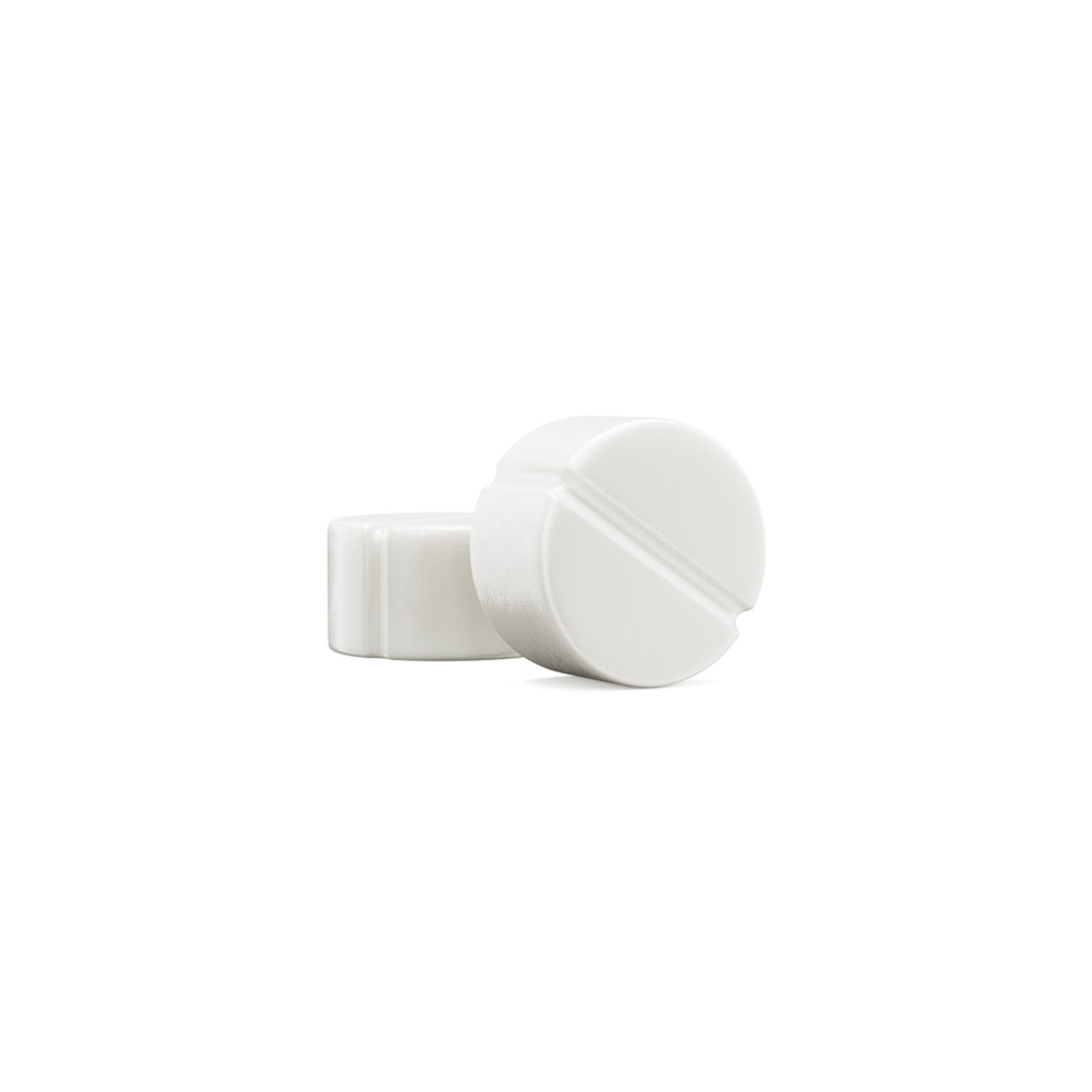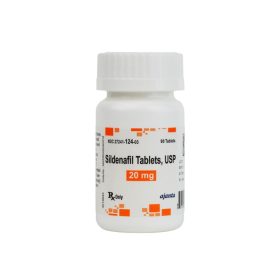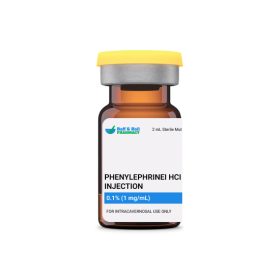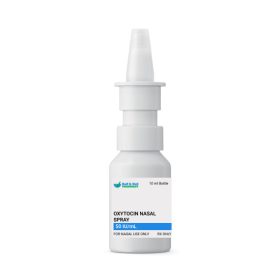Vardenafil / Apomorphine HCl Troche (Each)
Vardenafil
Commonly prescribed for erectile dysfunction (ED), vardenafil belongs to the phosphodiesterase type 5 (PDE5) inhibitor drug class. Unlike certain medications used to treat ED (e.g., alprostadil), this group of medicines does not inhibit prostaglandins. More selective for PDE5 than PDE6, which is found in the retina, vardenafil and tadalafil are This results in fewer visual negative effects such those noted in sildenafiltreated patients. One benefit of vardenafil might be that it reaches peak plasma concentration more quickly than sildenafil and tadalafil, therefore accelerating the beginning of action. Among 580 patients, erections got better in 80% of men and their ability to complete sexual activity with ejaculation increased. Diabetes management and radical prostectomy patients have also shown evidence. First-line treatment is oral phosphodiesterase type 5 (PDE5 inhibitor) according to ED treatment criteria.
apomorphine hydrochloride
To see if a patient would respond or is still responsive to levodopa therapy, apomorphine has also been employed as a diagnostic test for dopaminergic response in parkinsonian syndromes. With a fast beginning of action, apomorphine has a notable impact on parkinsonian hypomobility (‘off’ episodes) refractory to oral drugs, and a therapeutic effect comparable to levodopa. Given reports of severe low blood pressure and loss of consciousness when apomorphine was given with ondansetron, concomitant use of 5HT3 antagonists with apomorphine is discouraged. Like other dopamine agonists, apomorphine has been linked to abrupt sleep onset during daily living activities and impulse control issues (e.g., strong cravings). to bet or spend money, more sexual desires). Practitioners using apomorphine should watch for hypotension, orthostasis, newly appearing or worsened impulse control symptoms, and patient accounts of abrupt sleep onset.
Normally, when a man is sexually stimulated, the body releases a chemical called nitric oxide (NO) in the penis. PDE5 breaks down cGMP, so by blocking PDE5, vardenafil helps keep cGMP levels high, supporting the erection process. Importantly, vardenafil only works when there is sexual stimulation—it doesn’t cause an erection on its own.
Vardenafil is more selective for PDE5 than for PDE6, an enzyme found in the eye that helps with vision. This means it’s less likely to cause vision problems compared to some other similar drugs, like sildenafil, which can affect color vision at higher doses.
In the esophagus, PDE5 inhibition can reduce muscle contractions and lower the pressure of the lower esophageal sphincter (LES). While this might help with some esophageal muscle disorders, it can also worsen acid reflux symptoms, which is why some people experience indigestion or heartburn when taking PDE5 inhibitors like vardenafil.
Apomorphine is a different medication that works mainly in the brain. It is similar in structure to dopamine, a natural brain chemical, and activates certain dopamine receptors. This action helps in conditions like Parkinson’s disease by improving movement control. Apomorphine also affects some other receptors related to adrenaline and serotonin, but its main effect is through dopamine receptors. One notable side effect is that it can cause nausea and vomiting because it stimulates a part of the brain called the chemoreceptor trigger zone. Although apomorphine is related to morphine, it doesn’t have typical narcotic effects like pain relief or addiction, except for its ability to cause vomiting and some effects on the central nervous system and breathing.
Vardenafil: Important Safety Information
Bleeding disorders
Eye or vision problems, including a rare inherited disease called retinitis pigmentosa
Penis abnormalities like Peyronie’s disease or a history of painful, prolonged erections (priapism)
Heart problems such as heart disease, angina, irregular heartbeats, or a history of heart attack or stroke
High or low blood pressure
Blood diseases like sickle cell anemia or leukemia
History of stomach bleeding
Kidney or liver disease
Do not take vardenafil if:
You are allergic to it
You are currently using nitrate or nitrite medications (often prescribed for chest pain).
You have severe liver disease or are on dialysis for kidney failure (safety in these cases is not established).
Dose adjustments:
Older adults (65 years and older) may need a lower starting dose because the drug stays longer in their system.
People with moderate liver problems may also need a lower dose.
Mild liver or kidney problems usually don’t require dose changes.
Heart and blood pressure concerns:
Sexual activity can stress the heart, so your doctor will check your heart health before prescribing vardenafil.
Use caution if you have had a recent heart attack, stroke, or serious heart rhythm problems.
Vardenafil can affect heart rhythm and blood pressure, so it should be used carefully in people with heart conditions or those taking medications that affect heart rhythm.
Prolonged erections:
If you have an erection lasting more than 4 hours, seek emergency medical help immediately to avoid permanent damage.
Vision and hearing:
Sudden vision loss has been reported rarely.
Vardenafil is not recommended for people with certain inherited eye diseases.
Sudden hearing loss or ringing in the ears has also been reported. Contact your doctor if you notice hearing changes.
Other precautions:
Vardenafil does not protect against sexually transmitted infections.
Use cautiously if you have acid reflux or hiatal hernia, as it may worsen symptoms.
People with bleeding disorders or active stomach ulcers should use vardenafil only after careful evaluation.
The orally disintegrating tablets contain aspartame (which has phenylalanine) and sorbitol, so they should be avoided by people with phenylketonuria or hereditary fructose intolerance.
Apomorphine: Important Safety Information
Apomorphine is used mainly to treat Parkinson’s disease symptoms and works by activating dopamine receptors in the brain.
Do not use apomorphine if:
You have a history of severe asthma or sulfite sensitivity.
Common side effects:
Nausea and vomiting are very common. Doctors usually prescribe anti-nausea medicine before starting apomorphine.
Drowsiness or sudden sleep episodes can occur. Patients should be monitored closely and advised not to drive or operate machinery until they know how the drug affects them.
Mental health effects:
Some patients may develop strong urges to gamble, increased sexual desire, or uncontrollable spending. If these behaviors occur, talk to your doctor about adjusting the dose or stopping the medication.
Blood pressure and heart risks:
Patients with heart or blood vessel disease should be monitored carefully, as apomorphine may worsen these conditions.
Apomorphine can affect heart rhythm (QT prolongation), which in rare cases can lead to serious arrhythmias. Use caution if you have heart problems or take other medications that affect heart rhythm.
Liver and kidney considerations:
People with mild to moderate liver or kidney problems may have higher levels of apomorphine in their body and need careful dose adjustments.
Other important notes:
Apomorphine can cause painful, prolonged erections (priapism). Seek emergency care if this happens.
Older adults may be more sensitive to side effects like confusion and hallucinations.
Vardenafil: Important Safety Information
Bleeding disorders
Eye or vision problems, including a rare inherited disease called retinitis pigmentosa
Penis abnormalities like Peyronie’s disease or a history of painful, prolonged erections (priapism)
Heart problems such as heart disease, angina, irregular heartbeats, or a history of heart attack or stroke
High or low blood pressure
Blood diseases like sickle cell anemia or leukemia
History of stomach bleeding
Kidney or liver disease
Do not take vardenafil if:
You are allergic to it
You are currently using nitrate or nitrite medications (often prescribed for chest pain).
You have severe liver disease or are on dialysis for kidney failure (safety in these cases is not established).
Dose adjustments:
Older adults (65 years and older) may need a lower starting dose because the drug stays longer in their system.
People with moderate liver problems may also need a lower dose.
Mild liver or kidney problems usually don’t require dose changes.
Heart and blood pressure concerns:
Sexual activity can stress the heart, so your doctor will check your heart health before prescribing vardenafil.
Use caution if you have had a recent heart attack, stroke, or serious heart rhythm problems.
Vardenafil can affect heart rhythm and blood pressure, so it should be used carefully in people with heart conditions or those taking medications that affect heart rhythm.
Prolonged erections:
If you have an erection lasting more than 4 hours, seek emergency medical help immediately to avoid permanent damage.
Vision and hearing:
Sudden vision loss has been reported rarely.
Vardenafil is not recommended for people with certain inherited eye diseases.
Sudden hearing loss or ringing in the ears has also been reported. Contact your doctor if you notice hearing changes.
Other precautions:
Vardenafil does not protect against sexually transmitted infections.
Use cautiously if you have acid reflux or hiatal hernia, as it may worsen symptoms.
People with bleeding disorders or active stomach ulcers should use vardenafil only after careful evaluation.
The orally disintegrating tablets contain aspartame (which has phenylalanine) and sorbitol, so they should be avoided by people with phenylketonuria or hereditary fructose intolerance.
Apomorphine: Important Safety Information
Apomorphine is used mainly to treat Parkinson’s disease symptoms and works by activating dopamine receptors in the brain.
Do not use apomorphine if:
You have a history of severe asthma or sulfite sensitivity.
Common side effects:
Nausea and vomiting are very common. Doctors usually prescribe anti-nausea medicine before starting apomorphine.
Drowsiness or sudden sleep episodes can occur. Patients should be monitored closely and advised not to drive or operate machinery until they know how the drug affects them.
Mental health effects:
Some patients may develop strong urges to gamble, increased sexual desire, or uncontrollable spending. If these behaviors occur, talk to your doctor about adjusting the dose or stopping the medication.
Blood pressure and heart risks:
Patients with heart or blood vessel disease should be monitored carefully, as apomorphine may worsen these conditions.
Apomorphine can affect heart rhythm (QT prolongation), which in rare cases can lead to serious arrhythmias. Use caution if you have heart problems or take other medications that affect heart rhythm.
Liver and kidney considerations:
People with mild to moderate liver or kidney problems may have higher levels of apomorphine in their body and need careful dose adjustments.
Other important notes:
Older adults may be more sensitive to side effects like confusion and hallucinations.
Vardenafil
Women should not use vardenafil. The FDA categorizes vardenafil as B. In people during pregnancy, there are no sufficient and well-controlled studies of vardenafil.
Apomorphine Hydrochloric Acid
The developmental hazards linked to the use of apomorphine during human pregnancy are unknown. There are little data available. A small group of pregnant women given apomorphine before to Caesarean section have had it. Between the two groups, infant Apgar scores were comparable; however, depressant effects were not seen in the apomorphine infant group; yet, the women did not Got apomorphine chronically and near obstetric delivery received it. When administered during pregnancy at clinically relevant dosages in animal reproduction experiments, apomorphine was linked with negative developmental outcomes, a higher incidence of fetal abnormalities, and maternal toxicity.
Vardenafil
Though vardenafil is known to enter the milk of lactating rats at concentrations around ten times more than seen in the plasma.
Apomorphine HCl
Along with the mother’s medical need for apomorphine and any possible negative consequences on the infant, the developmental and health advantages of breastfeeding should be taken into consideration. A drug-fed infant or one from the underlying maternal condition.
Store this medication in its original container at 68°F to 77°F (20°C to 25°C) and away from heat, moisture and light. Keep all medicine out of the reach of children. Throw away any unused medicine after the beyond-use date. Do not flush unused medications or pour down a sink or drain.
- Montague DK, Jarow JP, Broderick GA, et al. Chapter 1: The management of erectile dysfunction: an AUA update. J Urol 2005;174:230-9.
- Apokyn and Apokyn Pen (apomorphine) injection package insert. Louisville, KY: US WorldMeds LLC; 2020 Apr.
- Kynmobi (apomorphine hydrochloride) sublingual film. Marlborough, MA: Sunovion Pharmaceuticals, Inc.; 2020 May.
- Bowron A. Practical considerations in the use of apomorphine injectable. Neurology 2004;62:S32-36.
- Levitra (vardenafil) package insert. Kenilworth, NJ: Schering-Plough; 2007 Mar.
- Staxyn (vardenafil orally disintegrating tablets) package insert. Whitehouse Station, NJ: Schering-Plough; 2010 Jun.
- Thadani U, Smith W, Nash S, et al. The effect of vardenafil, a potent and highly selective phosphodiesterase-5 inhibitor for the treatment of erectile dysfunction, on the cardiovascular response to exercise in patients with coronary artery disease. J Am C
- Roden, DM. Drug-induced prolongation of the QT interval. New Engl J Med 2004;350:1013-22.
- Crouch MA, Limon L, Cassano AT. Clinical relevance and management of drug-related QT interval prolongation. Pharmacotherapy 2003;23:881-908.
- van Noord C, Eijgelsheim M, Stricker BH. Drug- and non-drug-associated QT interval prolongation. Br J Clin Pharmacol 2010;70(1):16-23.
- Benoit SR, Mendelsohn AB, Nourjah P, et al. Risk factors for prolonged QTc among US adults: Third National Health and Nutrition Examination Survey. Eur J Cardiovasc Prev Rehabil 2005;12(4):363-368.
- Koide T, Ozeki K, Kaihara S, et al. Etiology of QT prolongation and T wave changes in chronic alcoholism. Jpn Heart J 1981;22:151-166.
- Galli-Tsinopoulou A, Chatzidimitriou A, Kyrgios I, et al. Children and adolescents with type 1 diabetes mellitus have a sixfold greater risk for prolonged QTc interval. J Pediatr Endocrinol Metab 2014;27:237-243.
- Burnett AL, Bivalacqua TJ. Priapism: current principles and practice. Urol Clin N Am 2007;34:631-642.
- Bortolotti M, Mari C, Giovannini M, et al. Effects of sildenafil on esophageal motility of normal subjects. Dig Dis Sci 2001;46:2301-2306.
- Woosley RL, Heise CW, Gallo T, et al. QTFactors List. Oro Valley, AZ: AZCERT, Inc.; Accessed March 31, 2020. Available on the World Wide Web at: https://crediblemeds.org/ndfa-list/– LinkOpens in New Tab
- Health Care Financing Administration. Interpretive Guidelines for Long-term Care Facilities. Title 42 CFR 483.25(l) F329: Unnecessary Drugs. Revised 2015.
- Holdsworth JD, Furness RM, Roulston G. A comparison of apomorphine and stomach tubes for emptying the stomach before general anaesthesia in obstetrics. Br J Anaesth 1974;46:526-9.
- Pomeranz HD, Bhavsar AR. Nonarteritic ischemic optic neuropathy developing soon after use of sildenafil (Viagra): a report of seven new cases. J Neuroophthalmol 2005;25:9-13.
- Escaravage GK Jr, Wright JD Jr, Givre SJ. Tadalafil associated with anterior ischemic optic neuropathy. Arch Ophthalmol 2005;123(3):399-400.
- Bollinger K, Lee MS. Recurrent visual field defect and ischemic optic neuropathy associated with tadalafil rechallenge. Arch Ophthalmol 2005;123(3):400-1.
- Peter NM, Singh MV, Fox PD. Tadalafil-associated anterior ischaemic optic neuropathy. Eye 2005;19(6):715-7.





